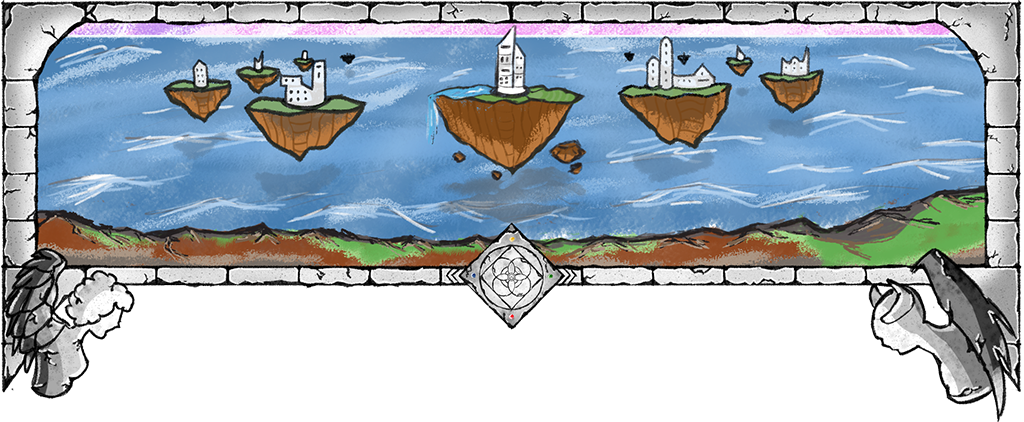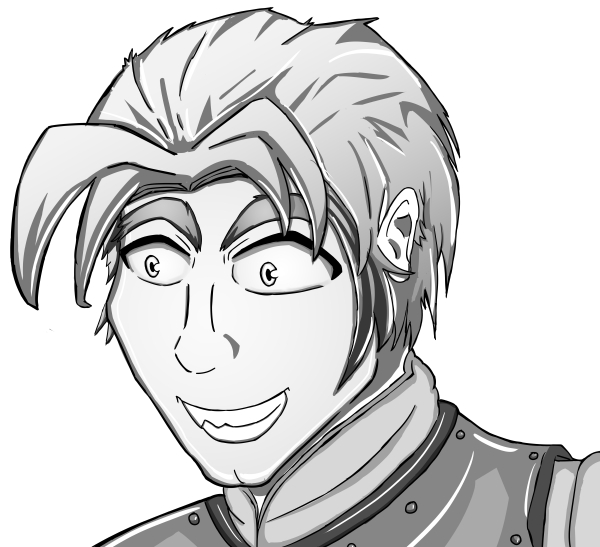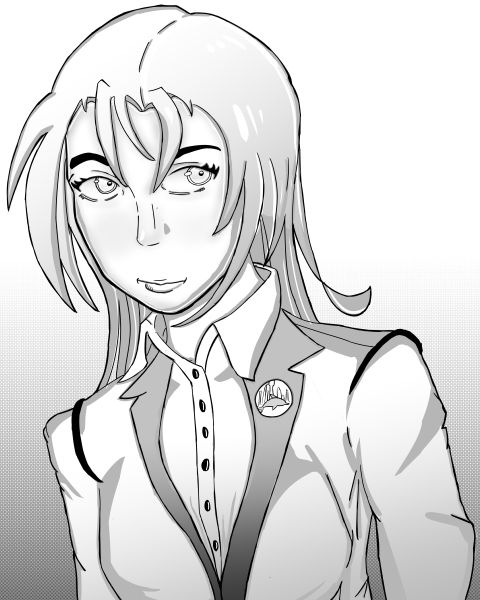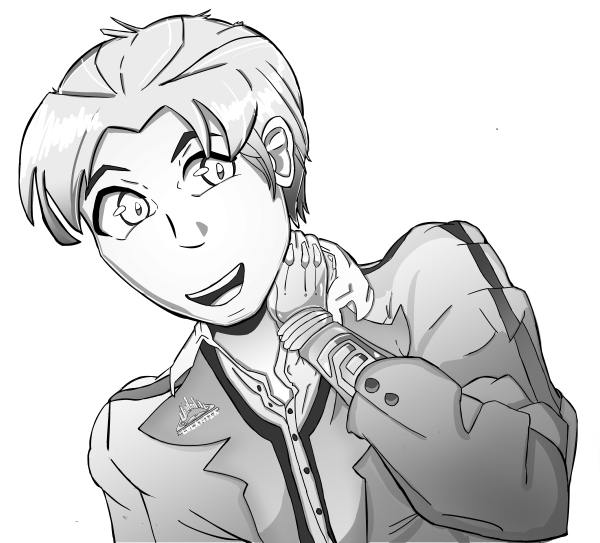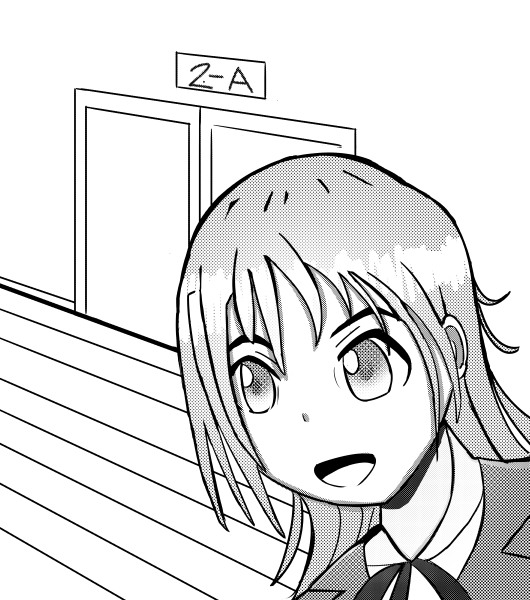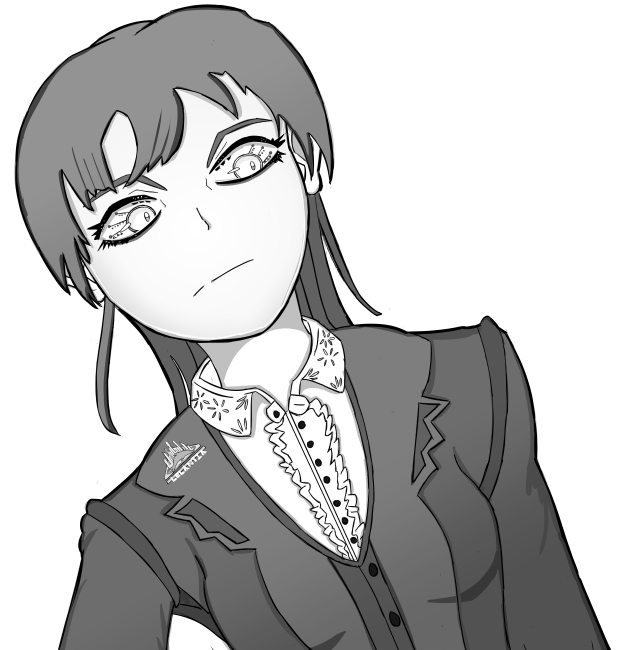I have piles of journals too arcane for anyone to read but me. This blog is intended to be a space that provides clarity to these ideas by giving them more substance and structure. In doing so, I hope to also provide a bridge for others to follow. This “teaching” has an unexpected effect of making the foundation stronger and easier for me to hold.
Part of the work I do is attempting to unify our ideas of the inside & the outside until there is no longer a distinction — all the while without losing ourselves. This goes deep into our relationship with the world and making decisions on the nature of that world.
Most of modern thought believes “the world” is a physical place — something outside of us that we have a limited ability to influence. Even most spiritual discussions devolve into discussing physical bodies that are suppose to be like radio tuners. Most people are stuck in the idea that we are ruled by atoms, cells and DNA. There is always another discovery, because this is part of the physical abyss. Most belief systems deal with accepting that which cannot be changed. This is not the position of Ex Inanis.
The objective nature of the universe serves at the behest of its subjective elements. If a building is the objective fact, then the bricks are the subjective explorations that built it. With effort, you can build new structures, or tear down old ones. * Another way to understand this is that there are no experiences which have more weight than others. When we give an experience a weight, it drags us down with it.
* Note, I do not believe we need to tear things down brick by brick. We just need to know where to plant the explosives.
Often, this is why we call the world suggestive, or an appearance, to help us remember this, rather than simply accept the world at face value. And it is important to remember this because in order to access new levels of knowledge, we must be able to hold certain truths long enough to see through them — like holding a spyglass, we can’t see beyond the horizon without it.
There are some elements in our living experience that are so old that they may as well be themselves gods, like the Earth or the sky. Yet it is important to adopt the understanding that there is “nothing above us”, or that nothing that can’t be understood or unwound. Rome wasn’t built in a day. If you are too afraid to question something, then it is your master.
What is freedom? Freedom is Heaven, Nirvana, ascension, or enlightenment. Pick your poison. This has a different meaning for everyone. Discovering this state of mind is a personal process and means we have to have informative positions or patterns from which we can live our lives to achieve it.
These informative positions allow us to derive all other knowledge without having to hold all that knowledge all the time. We might call these truths (with a little t.) As we amass more and more of these truths, we can often see Truths (big T) — that is, the Truths are glimpses in how the “ultimate” cosmos must work — through the cracks. The more efficient we become at this, the easier it is to keep peeking at the big Truths and organize ourselves in service to the big Ts instead. And every time we do, we become a little lighter and a little more cohesive.
The big T Truths can’t be held within the mind “all at once”, which would be like attempting to see an object from every vantage point. At best, you can make a record from each point and then tie them together to get an accurate picture.
Imagine a human mind can hold the contents of a single book. One whole book. If “freedom” is the contents of a million books, how are we to ever achieve enlightenment? We fill our one book with references. We become the ultimate reference book — a living conduit — able to navigate all of creation with our one little book.
In computer science, a pointer is an object in many programming languages that stores a memory address. This can be that of another value located in computer memory, or in some cases, that of memory-mapped computer hardware. A pointer references a location in memory, and obtaining the value stored at that location is known as dereferencing the pointer. As an analogy, a page number in a book’s index could be considered a pointer to the corresponding page; dereferencing such a pointer would be done by flipping to the page with the given page number and reading the text found on that page. The actual format and content of a pointer variable is dependent on the underlying computer architecture.
https://en.wikipedia.org/wiki/Pointer_(computer_programming)
Humans must build and re-build scaffolding through ritual, habit, prayer, works, and so on in order to progressively ascertain higher truths. Neglecting this work is catastrophic, because the human narrative is entropic. We write stuff in our (one) book that shouldn’t be there and it starts to displace things. To offset this decay, we have to model our lives to new truths so that we are re-building and re-freshing them all the time until it is second nature like breathing. This raises our baseline.
The objective of any spiritual, philosophical or intellectual practice is to keep raising this baseline. We might also call this self-actualization or the process of cohesion. Keep writing more right things than “less right” things in your book.
This all sounds like a lot of work. Right? Why can’t we just live our lives and be happy? Some people do just that. They become content with the book and do not care to discover they are the librarian. These people are the drunk librarians who can’t remember their reference system or keep dropping their reference book, bouncing from one book to the next. They have simplified their existential process by denying it altogether.
First of all, can we imagine the state of mind that Ex Inanis is striving to achieve? We can. It is exemplified in fictional works all over. One example that I love in particular is from the book/movie of Harry Potter & the Half-Blood Prince where Harry drinks a “Luck Potion.”
The luck potion allows Harry Potter to conduct himself in a effortless flow of perfect intuition. This allows him to fix multiple “timelines” that have gone awry. He often says he has “no idea” why he is doing what he is doing, because there is no room for the answer — just the reference. He has become the librarian.
I suggest reading the book or watching the movie and seeing the entire sequence from the perspective of an “enlightened consciousness” — see Harry as the “observer making decisions” and the whole story as Harry’s own consciousness.
Hermione says: “We have a plan.” But a plan is fixated, too granular, like picking up a hundred grains of rice, or counting all the steps to your destination. Drunk! Whereas Harry has become a conduit for his “librarian” who knows where all the books are that will tell him everything he needs. Harry says: “Trust me, I know what I am doing. Or Felix (God, Higher Self, the divine, intution, etc.) does.”
We can also go back to the classic discussion Morpheus has with Neo –>
Morpheus: “Yet their strength and their speed are still based in a world built on rules and because of that, they will never be as strong or as fast as you can be.”
Neo: “What are you trying to tell me? That I can dodge bullets?”
Morpheus: “No, Neo, I am trying to tell you, when you are ready — you won’t have to.”
The Matrix
As long as you see the world as immutable — altars — gods — you are fixed to that world — to that box. This is the world of the drunk librarians. These are people scribbling in their reference book, blotting out stuff, writing in the margins — filling it with all the wrong (fixated) stories. These stories aren’t just vices, or bad habits or urges. They are also material. Things that seem untouchable.
You are referencing these stories everyday — atoms, DNA, clouds, trees — yet even if you read (explain) them all, there will just be more. And that is wonderful, but wouldn’t you rather pick your story? A drunk librarian is one who stumbles from shelf to shelf (life to life.)
How can we possibility achieve this state of mind when we are riddled with feelings of doubt — existentialism? (Why do you keep copying all these unnecessary details into your one and only reference book?)
You cannot “exit” the matrix. Getting unplugged is just another story. Another layer. There are infinite layers, infinite books– an infinite abyss, an infinite labyrinth, because it is all consciousness and consciousness is infinite. It is you, the child of God, writing the story (or picking the story, if you prefer.) There is no matrix. You are creating your own matrix. Would you rather be able to pick the next book, or just drunkenly stumble to the next one?
This comes across as pithy and not very practical and Ex Inanis loves making wisdom practical.
Almost all practical wisdom often posits some idea of acceptance. Acceptance is good. But acceptance can be dysfunctional. Acceptance can become dysfunctional when you raise the physical world above your awareness (which remember is the root of will — it contains the mechanism by which free will is enabled). When you raise something above your awareness, you are creating an altar — something to service — something which makes choices for you.
… something that writes in the reference book for you. If you don’t control the reference, then who does?
Some schools of thought believe that “enlightenment” is achieved by putting everything above your awareness through a state of “total acceptance.” Thus you achieve liberation by having no need to make choices. These beliefs might assert that this is how to merge the inside & the outside ; in other words, through the surrendering of choice, we achieve a transformation where “our” choice becomes one with the world.
While there is salient wisdom in this in teaching us harmony & flow — this is not the way. This is being drunk. If you just keep jumping from one story to the next, then where are “you”? You will never know your true self.
This idea of “absolute acceptance” elevates the state of flow or harmony above awareness — above choice. But this is foolish, because we can imagine the ability to effortlessly remain in this state — as a matter of choice — rather becoming lost in the service of it. We are not Harry the “luck potion” addict. This is like confusing an urge with a desire. The urge being something that controls us and a desire being a conscious choice we wish to experience.
That is the way of physicalism when we devalue our awareness. It is not incoherent per se but it is a trap — that is, it has the potential to overcome suffering / resolve existentialism — but it is a more static, unchanging form of coherence, like mother nature, or a rock. A rock can weather almost any storm, but a rock has no potential whatsoever. That is the natural conclusion of physicalism.
You cannot become the book. You can pretend you are the book being picked by the librarian (physicalism) to alleviate the burden of choice, but this is just you choosing to be the drunk librarian (incoherent, non-enlightened) versus the lucid librarian.
I am a strong believer that you can have your cake & eat it too.
What would a consciousness look like that is free of existentialism? It would resemble the mind of a child who sees the world as a game to be played. A child does not see a world that can harm them. It is the ability to play-pretend in any role without any consequence, just as children do when they play cowboys & indians or heroes & villains. It is just a world full of wonder, exploration and fun. Indeed, reality becomes a game.
But a child lacks the agency which we learn as adults which is not, in fact, ego, but a critical part of the alchemical process of actualization / enlightenment.
Alright — so, we have an idea of what enlightenment looks like. It some kind of synthesis of our inner-child and adult — resulting in a kind of a true self that is able to “have the cake and eat it too.” Freedom. The ability to choice anything. Absolute free will.
Remember, we are looking for informative positions here — truths — from which we can derive future knowledge & behavior.
Does our reality appear to us as a game? No, it does not. It is often full of suffering, doubt and undesired challenge. Even a peaceful life is often full of rote & chore, or the transmutation of negative into positive (a bias): it requires a process of work (which is the residue of physicalism we need to shed.)
In physics, work is the energy transferred to or from an object via the application of force along a displacement. In its simplest form, for a constant force aligned with the direction of motion, the work equals the product of the force strength and the distance traveled.
https://en.wikipedia.org/wiki/Work_(physics)
Can we point to one feature of a game that makes it a game? Sure, we can — a game is an experience with which we can disengage from at anytime. We can quit. We can logout. We can put the book down.
Can we quit being human? Can we quit Earth? At first glance, it appears like we can’t. And this tells us things. But is this true? Can this tell us something informative?
Some folks might say, sure, you can quit. You can die. But the knowledge or concept of death does nothing for us. That is, the idea of death does not cure us of existentialism. Death, is in fact, the ultimate personification of existentialism — the great mystery. So while death as a concept does us no good — it gives us a clue.
What is the clue? The clue is that we can imagine a state where death is not a mystery — that is, a state where there is no death. And if death = existentialism … aha! That is the state of mind we talked about earlier — one without existentialism — that we want to achieve — enlightenment, Nirvana, etc … Freedom!
We know that this mind (the enlightened mind) plays reality like a game. And we identified a seminal feature of games as the having the ability to turn them off. And we know that death is not this “turn off” because it does not cure us of existentialism or thrust us into Heaven upon apprehension.
So, being deathless — free of doubt — is also the ability to “play games”, i.e., the ability to engage & disengage from experience at will. An interesting thing to note here is this is a good example of “As above, so below” — it is considered the height of enlightenment to be able to engage/disengage from experiences without being disturbed by them. Non-attachment. In but not of. And so on. This is very telling.
Again, we return to our Earthly experience. Can we quit? The answer appears to be “no.” Well, it is more complicated than that, but for now let’s run with it. Because the answer is “no”, this also gives us a clue.
So far we have determined that we live in an existential reality. It is reality where we must DOUBT. This is huge because it gives us an informative position — a little t(ruth.)
Because we cannot ascertain the true nature of this experience, we can derive an entire paradigm for dealing with it. We can assume that whatever the nature of the reality is, we are operating with an incomplete picture though we can “imagine” a complete picture. By the way, this is the gist of what I call the Infinity Principle. This allows us to start setting up a basecamp.
There is an important tangent we must take here. Once we have established we are living in an existential reality, this means “all bets are off.” This means we are solely responsible for the trajectory of our consciousness, because there is nothing that cannot or should not be questioned (because it cannot be verified) up to and including seemingly fixed things like “being human” or “living on Earth.” Doubt is pervasive. Indeed, there are whole realms of knowledge that are impenetrable unless you are willing to question these things. These all come under suspicion and we are doing ourselves a tragic disservice if we do not “reach for the stars.”
NTS: This leads to complicated discussions regarding faith, knowledge and decisions. We also introduces the subtle “trap of proof” here.
This would highly suggest that we are beings that are going through a birthing process. But hold on! Perhaps the logout procedure is just obscured or something for us to discover. But this does us no good. This just introduces a “hidden rules” problem.
If, in fact, there are hidden rules that are obstructing our withdrawal from this experience — or the changing of this experience — then from an informative standpoint is is the exact same existentialism problem. Our live still devolves into a “search for the hidden.” We still cannot act from a liberated (enlightened) “freedom” mind, which we know must be possible just by imagining it.
Alright, alright — well, perhaps then, this is solved with faith. Through a lifetime of inner work, contemplation and dedication, can we achieve a level of faith that is synonymous with knowing? That is, can we abolish all doubt on faith alone?
If we accept that we can, then this just leads us back to existentialism rather than knowing, because it means there are “no limitations.” That is, we are creating an absolute state via an act of decision / will — we are creating “absolute faith” to abolish doubt. But if we can create absolute faith, this means we can use the same process to create absolute ANYTHING. There is nothing sacred. It tells us nothing. Nothing informative is gained. The world remains unchanged. The doubtless mind remains elusive.
If we argue this is the point — that absolute faith frees us — this is just another vein of “ego abolishment” — i.e., back to the physicalism problem we discussed earlier. Drunkeness.
If you argue that “exits are trying to escape yourself”, then this denies that we have a free will choice in our experiences, or how those experiences are created. This is a hidden rules problem. If you argue there are boundaries (like limited free will), you are just returning us to existentialism again.
Alright, buddy, then maybe your problem is this whole “games have exits” problem. Your whole premise falls apart if we can have games without exits. Why can’t life just be this gradual folding/unfolding process?
If you argue against the premise that ‘games have exits’ you are introducing a bigger cosmological design problem. You are asserting that lives without existentialism are impossible — which is, itself, impossible, because it would be “division by zero.” We can imagine realms or states of mind that have no doubt, so they must exist (again, Infinity Principle). Denying them “splits infinity” and thus creates an entropy box (existentialism!!!) So we must ask, then, why this reality isn’t like that, which returns us to existentialism.
If you opt to argue that my choices to choose something else are a form of self-rejection, then you are looping us back to “hidden rules” and physicalism.
To further elaborate the “cosmological design problem” — the denial of game exits would assert that there is a natural cosmological process of “diving” and “ascending” that takes hundreds of lives as if this was the default (or only) way of life. Even as humans, we can imagine “game like” modes of operation.
If you assert well this is it — death is just oblivion — then you are asserting nothing at all. Like figurative and literal. Which means you have no meaningful contribution at all. You are just a sock puppet for Nonsense. Do you even read this website?
The most reliable assumption is that this is a “required” experience for beings that are undergoing a process of “self-actualization.”
“As above, so below” — the idea of exits can also be synonymous with the idea of being able to engage and disengage in a harmonious and balanced way with anything life throws at us, rather than in the more esoteric extremes like other dimensions or logging out of a simulation. That is, at least, the beginning.
If you ask: “are you where you want to be, or have the things you want?” while pretending the existentialism isn’t a problem, this is gaslighting because the existentialism itself is the problem, or the thing “that we want.” You can’t redirect us back to the “world of appearances” because we desire to get at the heart of the storyteller itself. We want to move from doubt to knowing. We want the freedom to engage & disengage from our experiences. We don’t want to keep playing the material game “without exits.”
If you say then just be in knowing, as a kind of brute-force decision, you are trying to create a game state without doing the inner work — without constructing (understanding) the exit (so, denial of choice, or denial of self.) This just creates a state of denial, or stasis (Groundhog’s Day) and is a form of gaslighting. A lot of spiritual folk get caught here and never evolve. This is the iconic, yet deceptive, image of the monk meditating on a hill in perfect bliss. Such practice is a form of Nonsense, or anti-life — which would require its own article. More drunkenness.
This article is not intended to provide a solution to these topics, but to show the path, which is a way to kill the “ego” (or “false” self), which itself contains the solution. We show the path because we often get star-struck and lose our footing. We leave breadcrumbs for our false self to get us back on track. This whole discussion, when taken as a whole, rather than in literal pieces, is full of clues — little taps on the shoulder saying: “Hey, wake up!”
All of the best philosophical, religious, spiritual, and occult works out there have gone through this same process and all have realized some variation of the “paradox” — the living “in but not of” solution — the synthesis — the ability to hold opposing states — the quiet mind — that must be employed. The more reliably we can hold this paradoxical mind, the more it becomes our default — our baseline. I think when it tips over a threshold, we will discover the freedom we are looking for that is eternal.
